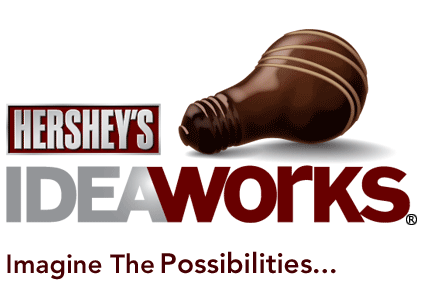Note: The blog is taking some well-deserved rest for the next two weeks (that is code for I am pretty much out of decent ideas, and I doubt most folks are spending their holidays reading blogs anyway), and will be re-running some of best, or at least most interesting posts from 2013. Maybe you missed these the first time around or maybe you didn't really miss them, but either way they are presented for your consideration. Thanks to everyone who stopped by in 2013!
Since it is New Year's Day, and I am purposefully avoiding writing an inane 'predictions' post (Wow, do you really think mobile will be big in 2014?), I found the closest thing to the same kind of piece in the 2013 archive. The below post took a look at what people who make a living attempting to see the future, i.e. Futurists, talk about when they get together to talk about the Future. The piece originally ran in July 2013.
----------------------------------------------------------------------------------
The State of the Future
Pretty much every HR/workplace/talent blog or blogger has at one time or another taken a stab at defining or predicting the 'Workplace of the future' or tried to opine on 'The future of work.' Speculating on the future is kind of fun for a blogger, I know I have done a bunch of pieces like that over the years. Those kind of posts are also fun due to the complete lack of accountability towards the accuracy of any of the predictions. I could post that intelligent and full articulated robots like Atlas, (aside - Atlas is super cool, and I have to post about him/her/it separately), will replace all HR/Talent functions in the organization by 2020 and pretty much feel confident even if I am wrong, no one is going to call me out about it seven years from now.
But there is another category of folks that spend even more time waxing philosophic about the future - actual futurists. People who spend pretty much all their time trying to spot new trends, consider what new technologies may emerge, (and how existing ones will change the world), and often try to help companies and governments with long, and even really long-term planning. 
And when futurists get together, they talk about the future - duh!. And just like in the HR space when after a big event like SHRM or HR Tech there are articles posted that reflect not just on the event itself, but also on the industry overall. And often these 'state of the industry/discipline' pieces are more interesting than specific or detailed event reports. A really good industry thinker is concerned more with and attempts to make these larger connections and conclusions by piecing together, comparing, and connecting lots of smaller data points.
So why did I start this post talking about futurists?
Because over the weekend I read this really interesting piece titled Dispatch From the Futures: Thoughts on WorldFuture2013, about a recent conference for futurists, and the overall state of that discipline - a kind of 'State of the Future' if that makes sense.
In the piece, the author breaks down what he/she, sees as some of the challenges facing the folks who get paid to see into the future, and while I encourage you to check out the entire piece, I'm going to drop a couple of the issues raised here, as I think they do resonate with folks in the HR/Talent space.
From the Futurist:
Radar or Canvass? Is foresight and the work of futurists primarily focused on scanning for dangerous futures (radar) or building new ones (canvass)? Again, this is a false dichotomy, but an important one. My sense is that governments and larger corporations focus on radar, while innovative companies focus on the canvass. And this thought experiment leads me to one of the more interesting questions posed at WorldFuture.
HR takeaway?
When faced with something new - like the emergence of social media, or of wearable technology, or of changing demands of a new generation of workers - how much time do you spend thinking and preparing for the worst, or at least thinking about things through a lens of risk mitigation? What percent of your time is spent developing ways to positively leverage these changes?
From the Futurist:
New Novelties vs. Megatrends: There is a tension between learning about entirely new future scenarios on one hand and exploring the evolution of already identified megatrends. Take 3D printing. Most of my friends at WorldFuture were already well aware of 3D printing and its impacts on the futures. But, despite the fact that most futurists were all over 3D printing several years ago, this tech is still in its infancy and could revolutionize manufacturing and commerce. It’s a huge and important trend worthy of study regardless of how long it’s been on your radar.
HR takeaway?
It is really easy to want to jump two or three steps ahead of the organization and push for adoption of the very latest and coolest new thing. But are you getting the most benefit out of the 'old' tools and technologies you already possess? Chances are there is a lot of untapped potential in things that seem old, but really are new to you and your teams. You don't always need to be first to adopt something in order to seem cool.
From the Futurist:
Resilience: Although very few sessions covered this topic, many of my discussions were on resilience. If the industrial era was about efficiency, perhaps the near future will be most about resilience, as people and societies develop hedging strategies as a means of coping with dramatic change. How might we classify these resilience strategies?
HR takeaway?
Are you assessing candidates for something like resilience? Are you coaching managers and leaders to instill this trait in their teams? Do you even consider yourself and your HR shop to be resilient? If the futurists are right about this one, it seems like you should be thinking just a little about how or not your organization stacks up here.
Like I mentioned you should take a few minutes and check out the entire piece here and I will let it go at that.
You might think that the Futurists are kind of the modern-day snake oil hucksters, but one thing is for certain - the future is coming for you and your organization whether you are prepared for it or not.


 Steve
Steve



